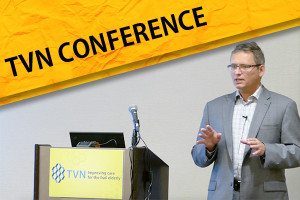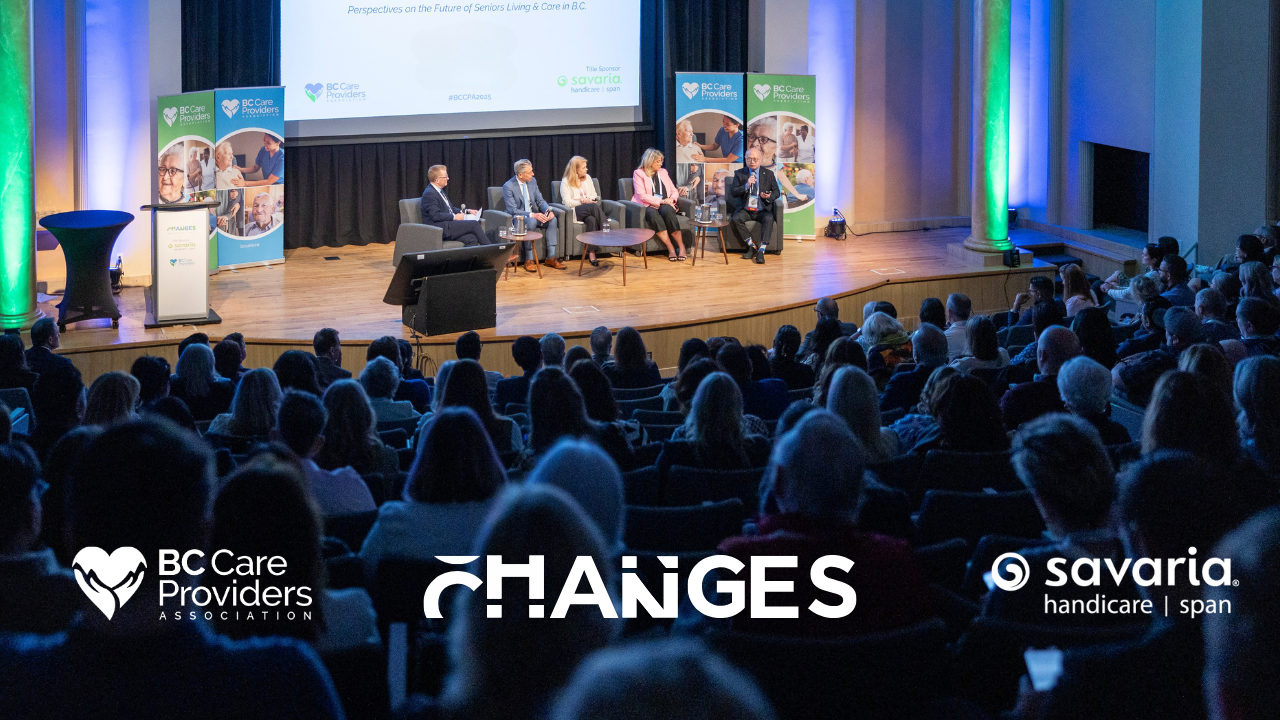 From September 27-29, 2015 the BCCPA Director of Policy and Research, Michael Kary, attended the third annual Technology Evaluation in the Elderly Network (TVN) conference in Toronto, Ontario. The conference, entitled Improving care for frail elderly Canadians, included academic and research representatives from across Canada.
From September 27-29, 2015 the BCCPA Director of Policy and Research, Michael Kary, attended the third annual Technology Evaluation in the Elderly Network (TVN) conference in Toronto, Ontario. The conference, entitled Improving care for frail elderly Canadians, included academic and research representatives from across Canada.
On the first day of the conference, health care sector representatives discussed better ways to engage with the frail elderly and their caregivers. TVN also developed and shared a discussion paper on this topic and participants held a series of round tables discussing four major themes, including:
- Strategies to engage frail elderly citizens and their family care givers in meaningful partnerships in research settings;
- Strategies to empower frail elderly citizens and their family care givers in decisions regarding their health needs;
- Strategies to influence planning and policy directions of the health care systems; and
- Methods for TVN to share and implement the ideas generated at the conference.
The second and third day of the TVN conference also heard a number of engaging topics relating to the frail elderly discussed. In particular, one session included panelists from the United Kingdom and Denmark, who shared international perspectives on frailty and late life issues, as well as current initiatives in those jurisdictions.
It was noted that Denmark is undertaking a number of initiatives including a new Dementia Initiative (2016 – 2025) and an Assisted Living Strategy (2013 – 2020). Denmark is also installing ceiling lifts in all of its care homes and is consolidating many of its hospitals. In 1996, Denmark also introduced a law mandating preventative home visits for seniors over 75 that has reduced hospitalizations and mortality rates. The speaker from UK, John Young, Director of Integration and Frail & Elderly Care for National Health Service (NHS) England also noted the importance of focusing on the person rather than the disease, and that the NHS has developed partnerships with fire fighters where these emergency responders will do over 670,000 home visits across the UK over the next 12 months.
Other sessions included how to better engage frail elderly and their caregivers when conducting research and how to better measure frailty in practice – including the development of clinical frailty tools and scales, and the use of InterRAI data. With respect to InterRAI data, Professor John Hirdes from the University of Waterloo reported that currently 10 provinces and territories across Canada are using InterRAI tools for assessing seniors’ health status for home care, residential care and acute care.
On the final day of the conference, specific themes relating to frail seniors were discussed, including in community and residential care, as well as acute and critical care. On this same day, Statistics Canada reported that for the first time Canada now has more seniors than youth under age 15. Another topic discussed was the importance of better advance care planning, including through advance care directives and living wills. Several session held concurrently in the afternoon dealt with issues around rehabilitation and nutrition, end-of-life and medication for frail elderly.
To close the conference John Muscedere, TVN’s Scientific Director, discussed the potential development of a national strategy on frailty, including work the organization would be undertaking in the coming months and years. Some of the highlights of Professor Muscedere’s presentation included that by 2025 there will be only 2.84 working adults for every senior, while 20% of total costs occur in the last year of life. With respect to building a national frailty strategy, key areas were identified, such as having improved evidence based research, developing small regional projects that can be scalable across Canadian jurisdictions as well as the development of appropriate tools including for routine screening, assessment, and measurement of frail elderly.
Overall, some of the major points and themes derived from the Conference include:
- Approximately 1.1 million seniors in Canada could be classified as frail elderly, and this number is growing rapidly.
- Particular deficiencies in caring for the frail elderly that were identified include: the poor transfer of information from acute to home and community care; the difficulty in engaging and conducting research on the frail elderly population; and the lack of coordinated team based care.
- TVN will be looking to renew its funding application for end of June 2016 and is contemplating a name change to reflect the scope of its work.
- Terminology referring to ‘frail elderly’ may also need to be revisited as many seniors prefer not to be referred to as frail.
- A number of programs and initiatives were highlighted such as the Palliative and Therapeutic Harmonization (PATH) program and Choosing Wisely Canada.
Overall, the themes outlined during the conference align with many of those in the recent policy paper produced by the BCCPA entitled Quality, Innovation, Collaboration: Strengthening Seniors Care In BC. This includes looking at new approaches and models of care for an aging population, particularly to deal with frail seniors. In the BCCPA paper, for example, it highlights the concept of new Continuing Care Hubs, which could provide enhanced services to seniors including chronic disease management and frailty screening. Other similar themes including the need to focus more on home and community care and looking at new team based care approaches involving multiple care providers.
For further information on TVN click here. To access its Annual Report click here.
About TVN
Technology Evaluation in the Elderly Network (TVN) is funded by the Government of Canada’s Networks of Centres of Excellence (NCE) program. The NCE program’s goal is to mobilize collaborations between researchers, industry, and other organizations to produce programs and products that further Canada’s economic strength and improve the quality of life of Canadians. As a research network, it collaborates with industry, health care, academic, non-governmental organizations and private partners to improve the care of seriously ill older adults and their families.





